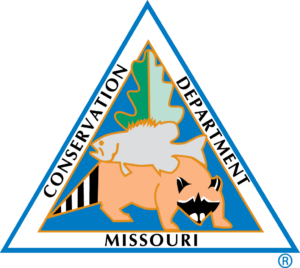Our plenary speakers for the American Ornithological Society (AOS) 2025 meeting include two invited speakers and the three winners of the 2025 AOS Early Professional Awards. These speakers highlight modern, cutting-edge approaches to ornithological science and the conservation of birds, and also showcase the diversity of the people doing this important work as well as the birds that they study.
Click link to jump to content below:
Invited Plenaries
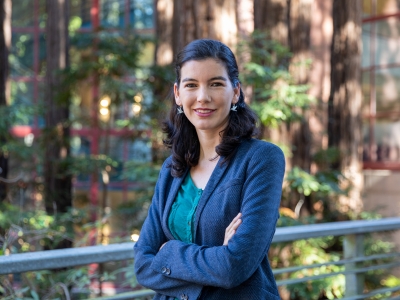
Natalia Ocampo-Peñuela
Assistant Professor of Environmental Studies, University of California, Santa Cruz
“Advancing equitable bird ecology and conservation in the tropics“
This talk will interweave ornithological and conservation research with real-life examples of equitable approaches to avian ecology and conservation. Ocampo-Peñuela will use three research projects to show how she and her teams have approached bird science and conservation through an equity lens. The talk will feature the “Colombia Resurvey Project,” which aims to quantify the impacts of a century of landcover and climate change on bird populations throughout Colombia while also focusing on diversity and community-engagement. Following the theme of bridging the gap from academic research to conservation action, she will tell us about partnerships in Colombia that aim to protect endemic and threatened birds. Finally, she will use her interdisciplinary work on birdwatching tourism to explore the potential benefits (and pitfalls) of this type of sustainable economic activity for the conservation of tropical birds and the welfare of the human communities that steward them.
Natalia Ocampo-Peñuela is a Colombian conservation ecologist with expertise in tropical birds. She completed her undergraduate degree Ecology in Colombia, then went on to complete a Ph.D. at Duke University with a Fulbright scholarship, and a postdoc at ETH Zurich. Since 2021, she has been an assistant professor in the Department of Environmental Studies at the University of California, Santa Cruz, where she leads the Conservation Ecology Lab. Her research blends insights from field observations, community science data, and geospatial techniques to quantify the impact of anthropogenic activities on bird populations and habitats. She uses these research insights to identify and map bird conservation priorities at local to global scales, often in partnership with conservation practitioners. Most of her research focuses on species of conservation concern—those endemic and/or threatened—in the world’s tropics, with a special focus on Latin America. Some of her current research themes include mapping habitat connectivity for the world’s birds, using bird resurveys to quantify impacts of landcover and climate change on bird populations, and understanding the role of birdwatching tourism in bird conservation and sustainable rural development in tropical countries. Her approach to ornithology and conservation centers diversity and inclusion, highlights the importance of authentic partnerships, and elevates the voices of those historically underrepresented in our field.
Fun Fact: Natalia’s bird earring collection features 50 species!
Follow Dr. Ocampo–Peñuela
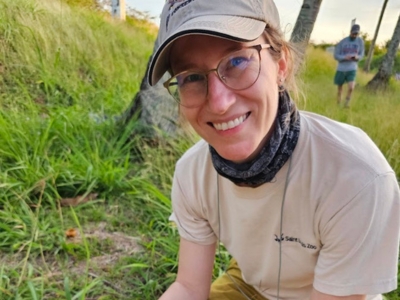
Amanda Bender
Fred Saigh Curator, Destination Discovery, St. Louis Zoo
“From Crisis to Commitment: Restoring Mariana Avifauna Through Collaborative Conservation“
The Mariana Islands are home to some of the most critically endangered bird species and are at heightened risk due to introduced species, human land use changes, and climate change. This presentation explores the journey from crisis to commitment in avian conservation in the region, focusing on the collaborative efforts of the Saint Louis Zoo, other AZA partners, local and national governmental agencies, and community stakeholders. Through the Mariana Avifauna Conservation project, we are working to prevent extinction and mitigate threats to endemic species like the Nosa’ Luta (Rota white-eye) and others, using translocation strategies and ex situ support. The talk will highlight how this partnership between NGOs, AZA members, and government agencies supports community-driven conservation goals in the Commonwealth of the Northern Mariana Islands (CNMI), aiming to safeguard Mariana birds in the Pacific Islands.
Amanda Bender is the WildCare Institute Center Director for Avian Conservation in the Pacific Islands at the Saint Louis Zoo, where she leads collaborative, community-centered conservation efforts for critically endangered island birds—including the Nosa’ Luta (Zosterops rotensis) and Saipan reed warbler (Acrocephalus hiwae). She holds a B.S. in Biology from Tulane University and an MBA from the University of Illinois, combining scientific expertise with strategic leadership to advance impactful, mission-driven programs. Amanda’s professional interests center on species sustainability, animal wellbeing, and building empathy for wildlife through meaningful guest engagement. She plays a leadership role in the development of Destination Discovery, a new family-focused Zoo experience designed to inspire connection and conservation action through up-close, interactive opportunities with animals. A dedicated AZA leader, she serves as the SSP Coordinator and Studbook Keeper for the tawny frogmouth, working to ensure the genetic health and long-term viability of the species. With a background in avian care, welfare science, and team development, Amanda brings a thoughtful, collaborative approach to both in situ and ex situ conservation.
Fun Fact: Outside of her conservation work, Amanda has recently developed a mild obsession with ants—an unexpected side effect of supporting her husband’s qualifying exam research on ant biology.
AOS 2025 Early Professional Award Winner Plenaries
James G. Cooper Early Professional Award Winners
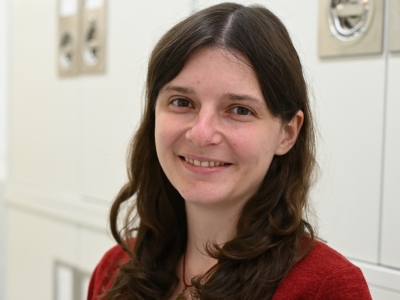
Teresa Pegan, Ph.D.
Postdoctoral fellow, Harvard University and University of Massachusetts Amherst
“The Evolutionary Consequences of Seasonal Migration”
Migratory birds are freed from constraints on movement, traveling thousands of miles to cross environmental and geographic barriers that structure biogeography and spatial evolution in most other animals. Migrants may thus show strong genetic connectivity in their breeding ranges. Yet migratory journeys are also driven by philopatry, the tendency to return to familiar areas instead of dispersing far away, and migrants face other unique tradeoffs in investment of time and energy across the year. How do these special facets of migration shape evolution in populations? To answer this question, Teresa Pegan compares population genomic patterns among species that vary in migration distance, focusing on songbirds of the eastern North American boreal forests. Comparative analyses show that migration distance has surprising evolutionary consequences beyond its connections to movement, shaping genomic patterns more typically linked to latitudinal gradients and the slow-fast life history continuum.
Teresa Pegan, Ph.D. received her bachelor’s degree from Cornell University in 2015, and her Ph.D. from the University of Michigan in 2023, advised by Benjamin Winger. She is now a National Science Foundation (NSF) postdoctoral fellow co-sponsored by Scott Edwards at Harvard University and Nathan Senner at the University of Massachusetts Amherst. Pegan is interested in how migratory life history strategies influence avian evolution. Her current work focuses on population and evolutionary genomics of extreme long-distance migrants in Charadriiformes (shorebirds and relatives). Her past work has been recognized by a University of Michigan Museum of Zoology Tinkle Award and an AOS Kessel Publication Award (Winger & Pegan 2021, Ornithology). Pegan was previously awarded the AOS Werner and Hildegard Hesse Research Grant (2019); an AOS Katma Award, (2020; Winger et al. 2019), and AOS annual meeting travel grants (2024, 2023, 2016).
Fun Fact: Teresa likes to knit tiny bird museum specimens.
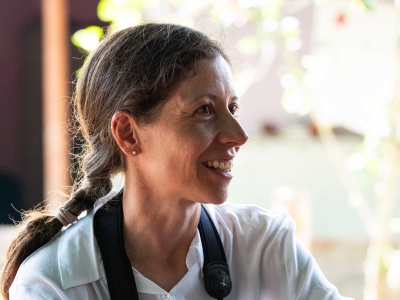
Valentina Gómez-Bahamón, Ph.D.
Assistant Professor, Virginia Tech
“Behavioral responses as catalyst for eco-evolutionary dynamics”
Animals can respond to ecological opportunities and challenges by behaving in different ways. If conditions persist in time, the correlated evolution of physiological, morphological, and life history traits can accelerate reproductive isolation and result in rapid speciation. However, behavioral traits tend to be evolutionarily labile, especially if they are under strong environmental control. Thus, initial divergence might not persist to influence eco-evolutionary dynamics. Valentina Gómez-Bahamón will present examples of her research in birds that aim to understand whether behavior promotes or hinders speciation and persistence. She will focus on the following processes: (1) the development of reproductive isolation in the early stages following behavioral switches, (2) the correlated evolution of behavior, morphology, and communication signals, and their role in enhancing speciation, and (3) the macroecological consequences associated with the evolution of alternative behavioral strategies.
Valentina Gómez-Bahamón, Ph.D. is an assistant professor in the Department of Biological Sciences at Virginia Tech. She studies how different ecological contexts influence behavioral responses that can drive evolutionary processes, promoting or hindering species formation and persistence. She is originally from Colombia, where she trained as an ornithologist with the non-profit organization SELVA: Research for Conservation in the Neotropics. Since then, she has been an active research and outreach volunteer affiliated with SELVA. She achieved her master’s degree at Los Andes University in Bogotá, and her Ph.D. at the University of Illinois at Chicago and the Field Museum of Natural History, followed by a postdoctoral fellowship at The Pennsylvania State University. Gómez-Bahamón is one of the managers of the Tomogrande Biological Station in the Colombian Orinoquía, where she has done research on behavior, conservation, ecology, and evolution of birds, as well as multiple training workshops for students. Additionally, she runs a long-term outreach project called The Migratory Truck in collaboration with community leaders and SELVA’s education team, which aims to foster the appreciation of nature through culture and science in marginalized communities of the Vichada Department of Colombia. As a Ph.D. student she received an AOS Research Grant (2017); an AOS Travel Grant (2019); and as a postdoctoral scholar she received an AOS Latin American/Caribbean Conservation Research Grant (2023).
Fun Fact: Valentina enjoys traveling by boat the most followed by traveling by train.
Follow Dr. Gómez-Bahamón’s research.
Ned K. Johnson Early Investigator Award Winner
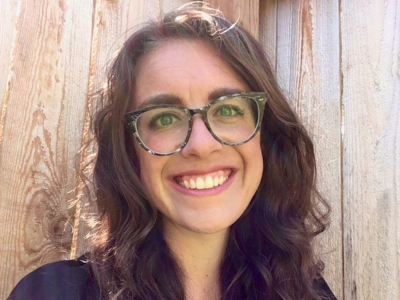
Maria Stager, Ph.D.
Assistant Professor, University of Massachusetts Amherst
“The importance of flexibility in a changing world”
Maria Stager, Ph.D., earned her B.S. in Natural Resources at Cornell University and spent a semester studying abroad in Italy. After college, she stumbled into bird research—working as an avian research assistant for projects in Argentina, Australia, and the Galapagos, among other places. She enjoyed doing research so much that this eventually led her to graduate school. Stager did her graduate work with Zac Cheviron, first as a master’s student at the University of Illinois at Urbana-Champaign and then as a Ph.D. student at the University of Montana. Her first postdoctoral position was at the University of South Carolina and later with Scott Taylor at the University of Colorado Boulder. Stager joined the faculty at the University of Massachusetts Amherst as an assistant professor in biology in 2022. The research in her lab combines field studies and laboratory experiments on natural populations while integrating tools from physiology, ecology, and genomics. Much of this work focuses on understanding how birds respond to environmental change and more specifically, the physiological mechanisms that enable an individual to cope with fluctuating environmental conditions throughout its life. Stager feels exceptionally fortunate for her experiences in the field of ornithology and for the opportunities she’s had to work and collaborate with so many passionate people. As a graduate student Stager received an AOS Council Student Presentation Award and Student Travel Grant (2019), as well as two American Ornithologists Union research awards (2013, 2016).
Fun Fact: Maria spends her free time walking her dog, Oliver, and hunching over her flower garden.


